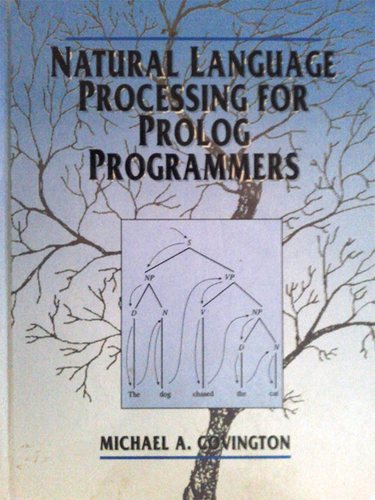
Natural Language Processing for Prolog Programmers
by Michael A. Covington
Publisher: Prentice-Hall 1994
ISBN/ASIN: 0136292135
ISBN-13: 9780136292135
Number of pages: 361
Description:
Designed to bridge the gap for those who know Prolog but have little or no background in linguistics, this book concentrates on turning theories into practical techniques. Coverage includes template and keyword systems, definite clause grammars (DCGs), English syntax, unification-based grammar, parsing algorithms, semantics, and morphology.
Download or read it online for free here:
Download link
(32MB, PDF)
Similar books
 Notes on Computational Linguistics
Notes on Computational Linguisticsby Edward Stabler - UCLA
What kind of computational device could use a system like a human language? This text explores the computational properties of devices that could compute morphological and syntactic analyses, and recognize semantic relations among sentences.
(16216 views)
 Prolog and Natural-Language Analysis
Prolog and Natural-Language Analysisby F. C. N. Pereira, S. M. Shieber - Center for the Study of Language
A concise introduction to logic programming and the logic-programming language Prolog both as vehicles for understanding elementary computational linguistics and as tools for implementing the basic components of natural-language-processing systems.
(20887 views)
 Stochastic Attribute-Value Grammars
Stochastic Attribute-Value Grammarsby Rob Malouf, Miles Osborne - ESSLLI
This text provides an introduction to the maximum entropy principle and the construction of maximum entropy models for natural language processing. We investigate the implementation of maximum entropy models for attribute-value grammars.
(9020 views)
 Natural Language Processing with Python
Natural Language Processing with Pythonby Steven Bird, Ewan Klein, Edward Loper - O'Reilly Media
This book offers a highly accessible introduction to natural language processing, the field that supports a variety of language technologies. With it, you'll learn how to write Python programs that work with large collections of unstructured text.
(16837 views)